
In a partnership with the Ford Foundation, the National Association of Latinos Arts and Cultures selected four projects from the Rio Grande Valley to receive their Border Narrative Change Grant.
According to the NALAC, the Border Narrative Change Grant supports arts and culture leaders on both sides of the border whose work challenges, shifts and transforms perceptions about the border and migration.
The four projects selected for the grants were: “Pansy Pachanga,” a documentary directed by Ronnie Garza and Gabriel Sanchez; Nansi Guevara’s animated series “Yali y the Magic Valley;” Xandra Treviño’s podcast project “Palmas del Valle;” and Trucha, an independent multimedia platform.
These projects were four out of 27 total grant recipients, which consisted of 16 organizations and 11 artists and cultural workers from different communities across Texas, Arizona, New Mexico, California and Mexico.
The Valley has recently garnered national attention once again: from Alex Jones and the InfoWars outlet harassing individuals outside the Catholic Charities of the Rio Grande Valley Respite Center, to politicians from across the U.S. visiting the area to push their partisan agendas.
Such spotlight on the RGV has garnered negative attention and unfair perceptions of the region, which is why the individuals behind these four projects are passionate to reclaim and transform these dominant narratives and uplift the community, people and culture here, they all said.
From documenting a history of South Texas’ LGBTQ community to an animation series set in the borderlands, here’s how these projects are challenging the border narrative and perceptions of the RGV.
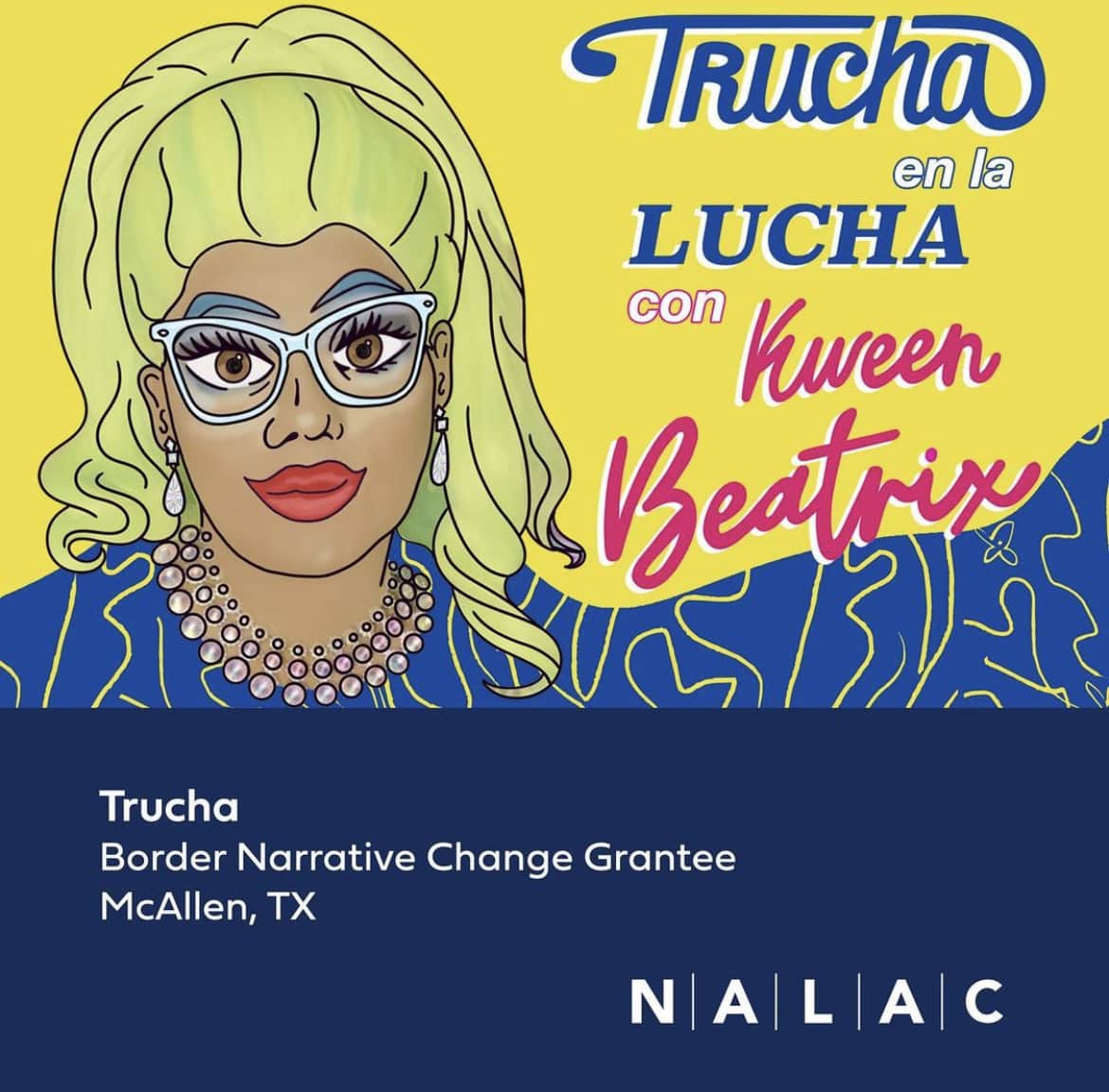
TRUCHA
Trucha is an independent multimedia platform dedicated to the people, culture and social movements of the RGV, while centering on queer and migrant communities of color, according to Trucha’s Cultural Organizer Josue Ramirez.
Ramirez explained that Trucha came from Neta RGV, another independent media platform aiming to amplify the voices of those who live in the region. Trucha was restructured, reorganized and rebranded from that organization, then relaunched in February of this year.
“We do have a history of centering the narratives of the Rio Grande Valley community and social justice movement,” Ramirez said. “That’s really what we’re trying to do.”
Ramirez explained the grant funding is going towards Trucha’s Rio Grande Creative Project in which the platform seeks to highlight the RGV cultural landscape through articles, videos and new media that share original narratives of the region’s artists.
Additionally, the Rio Grande Creatives Project and Trucha will also collaborate with local organizations to incorporate arts and culture to mobilize the community on immigrant rights, reproductive rights, racial justice and the environment.
“Artists have that power,” Ramirez said as he explained how arts and culture is one of the main drivers of shifting the perceptions of the border. “We want to help harness it.”
To learn more about Trucha and the work they do, visit https://truchargv.com/.
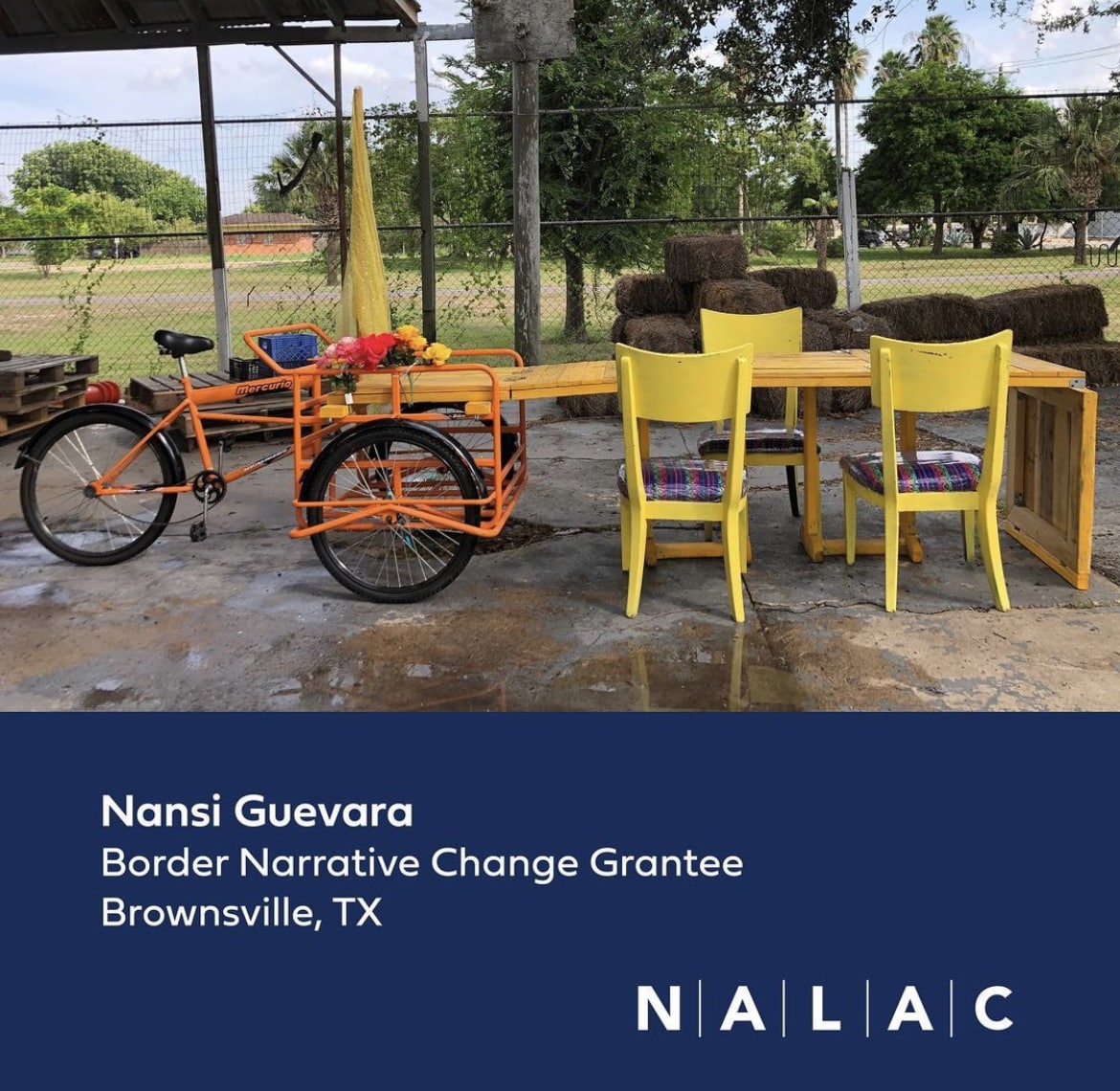
YALI Y THE MAGIC VALLEY
Visual artist and activist Nansi Guevara has worked on various children’s books and is in the process of writing another one because she is interested in creating media for children through a narrative based on community.
“We often find media misrepresents the border, or just ignores the border, but I am interested in creating our own narrative of joy and culture and cultural wealth and community here in Brownsville,” the 32-year-old said.
Set in the borderlands of the Rio Grande Valley, the episodic animation series follows Yali, as her ancestral guide transports her across place and time, transcending borders. The quests Yali goes through aids her in understanding and reaffirming her love for her home, the RGV.
The Magic Valley in the series’ title refers to a marketing campaign from the 1920s, Guevara explained, in which anglo settlers promoted the region as an agricultural economy to farmers in the North and Midwest. However, during that time, the RGV area was actually a ranching economy.
“This led to growth in anti-Mexican narratives and rhetoric, ‘justifying’ the theft of land from Mexican ranchers sanctioned by the state and Texas Rangers,” according to Guevara’s grant project overview at NALAC.
“This is a short series that gives us a true reflection of our community from our point of view,” Guevara answered when asked how the project would challenge perceptions of the region’s border narrative, adding that the series is for youth and children in the Valley. “It’s not trying to convince other people of our humanity, it’s really a piece that is made by and for Valley folks.”
Guevara stressed the importance of seeing images that truly reflect ourselves, beauty and culture, which is why she wants to support the next generation by providing access to media with these true reflections. Guevara says she didn’t take a class in ethnic studies or Mexican American studies until she was in college.
“We just need radically different images because a lot of young people like myself are influenced by all the same messages that we get by living on the border — in terms of a militarized border,” Guevara said. “That’s why I’m like, we should have access to true images of ourselves.”
For more information on “Yali y the Magic Valley” and Guevara’s work, visit https://www.nansiguevara.com/.
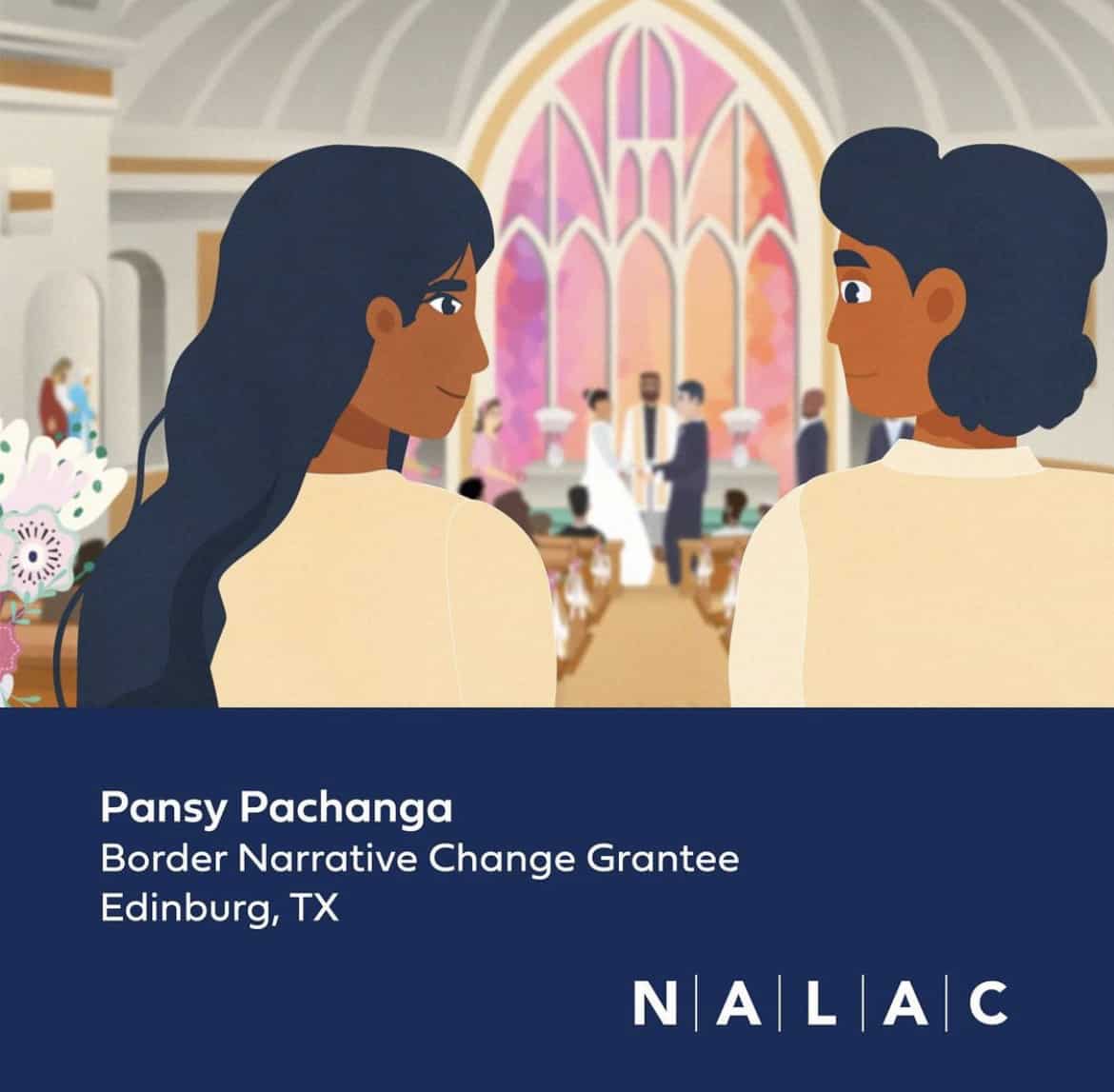
PANSY PACHANGA
Co-directors Ronnie Garza and Gabriel Sanchez wanted to tell the story of a different community in the RGV that represents, what they believe, is the excellence of the region: the LGBTQ community.
Covering about 50 years of LGBTQ history in the Valley, the documentary Pansy Pachanga tells the story of the community’s struggles and its intersection with the issues of race, class, culture, gender, immigration and the identity that marks the borderlands.
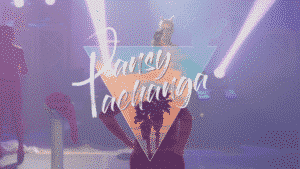
“There are living, breathing, thriving communities here that through generations of neglect and generations of marginalization have still managed to thrive and create spaces for each other and survive all the different adversities in their way,” Sanchez said.
The co-directors said they are committed to capturing the complexity and the beauty of the Valley and expressed concern for how the region is consistently used for the same talking points in national media, specifically relating to immigration and cartel violence.
The co-directors explained in detail the complexity of the LGBTQ community in Pansy Pachanga, which ranges from showcasing people talking about physical violence stemming from homophobia to the fact that there isn’t a widespread mainstream acceptance of all LGBTQ people in the Valley.
“If it was hard when I was growing up, I could only imagine how hard it was in the sixties or seventies,” Sanchez said. “But the fact that so many people stayed and found really creative ways to thrive and to help each other survive… I think that says a lot about this place and this community in particular.”
With the grant’s support, Garza explained it’ll help the co-directors wrap up post production and work towards distribution, such as the creation of Blu-rays, DVDs, merchandising and advertising. Additionally, they were also able to afford extra features for the documentary, such as adding animation. Though the documentary’s release date is still to be determined, Garza said they have submitted a rough cut to some film festivals.
“As two queer Latinx creators, I think a lot of times it feels like we have the odds stacked against us when it comes to who gets to tell which stories,” Sanchez answered when asked how it felt to be a recipient of the grant. “It’s really awesome that this grant empowers us and gives us some tools and resources to be able to make our vision come to life.”
For more information on “Pansy Pachanga,” visit the documentary’s Facebook or Instagram pages.
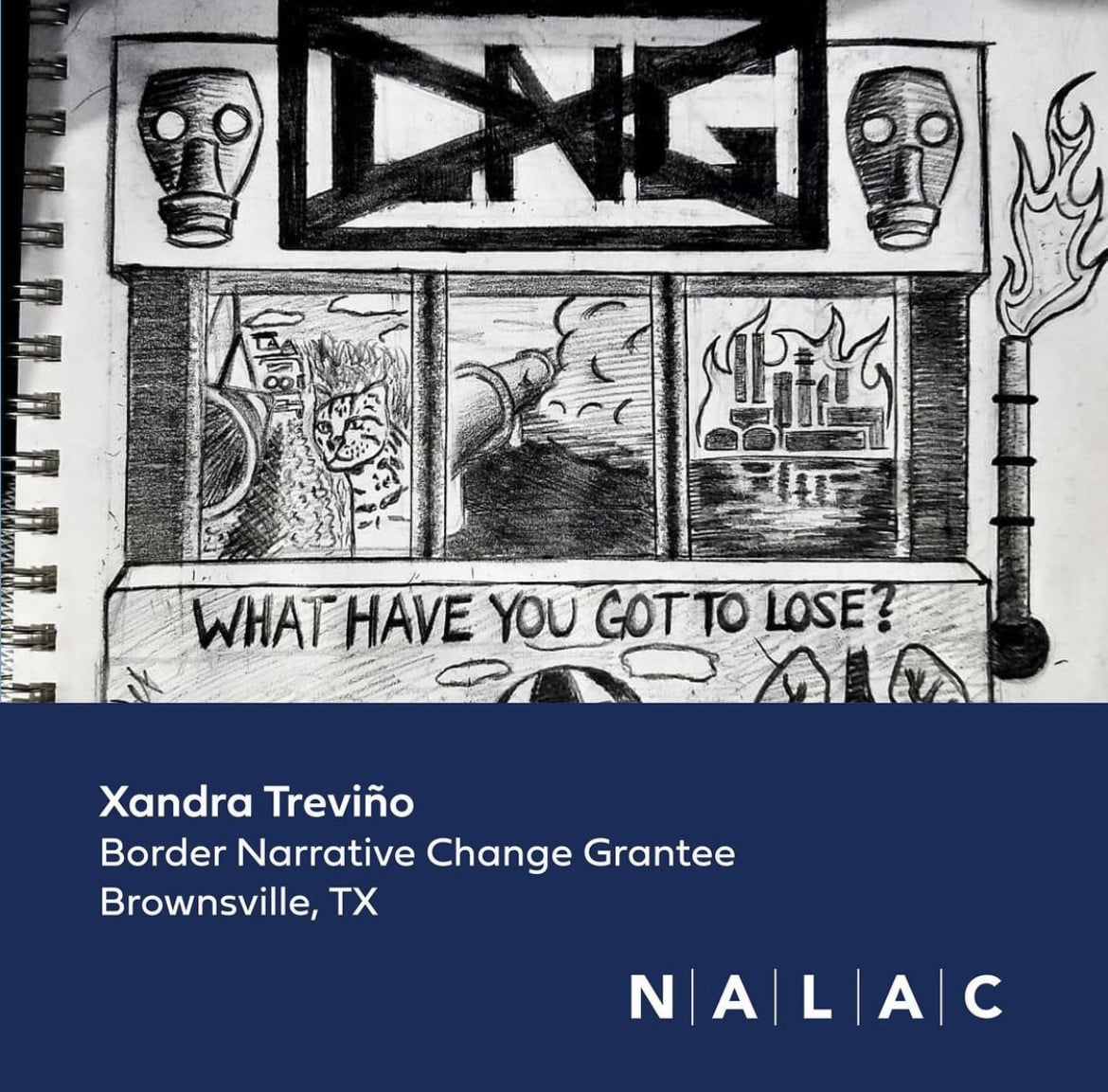
PALMAS DEL VALLE
As an artist based in Brownsville, Xandra Treviño’s podcasting project “Palmas del Valle” aims to interview various changemakers in the city to “demystify local social justice efforts and counter narratives shared by the ruling class to discredit progressive individuals and movements,” according to the NALAC’s page on Treviño.
As of press time Friday, Treviño had not responded to calls seeking comment.
Treviño, however, aims to create a resource library to guide listeners that want to become involved in civic engagement.
“Grounded in the belief that people deserve to know that there are others taking action for the well-being of border communities, the series will elevate voices of those speaking against injustices by those in power, who frequently ignore calls for change,” the website post read.
To learn more about Palmas del Valle or Treviño’s work, visit https://www.instagram.com/xandra_rgv/.



